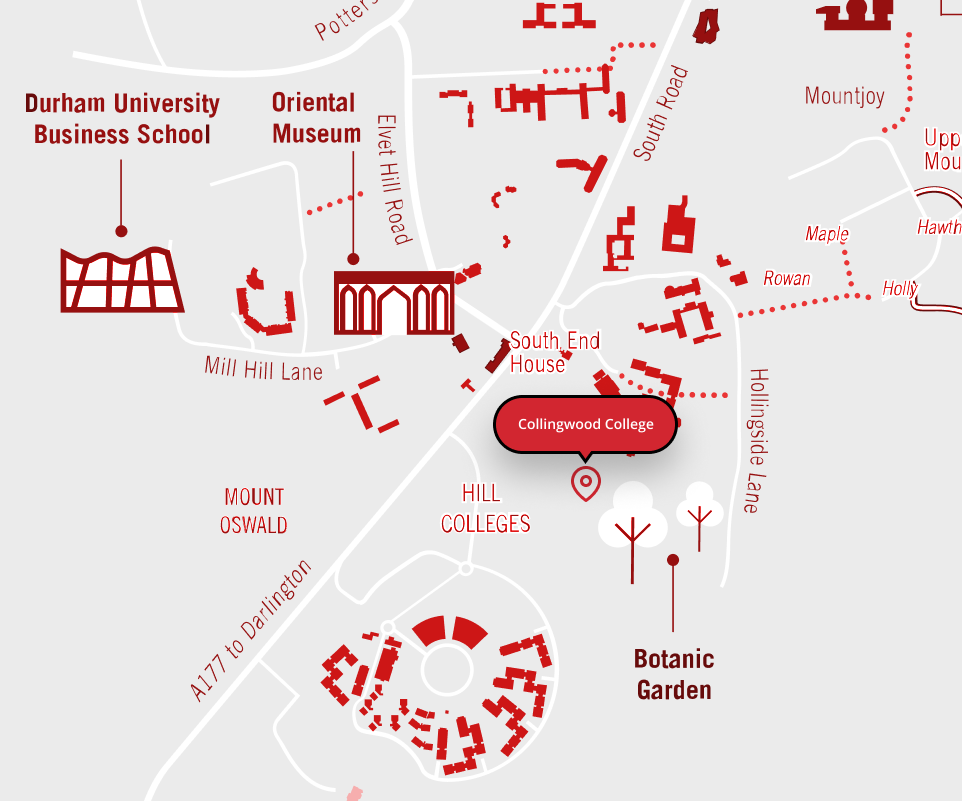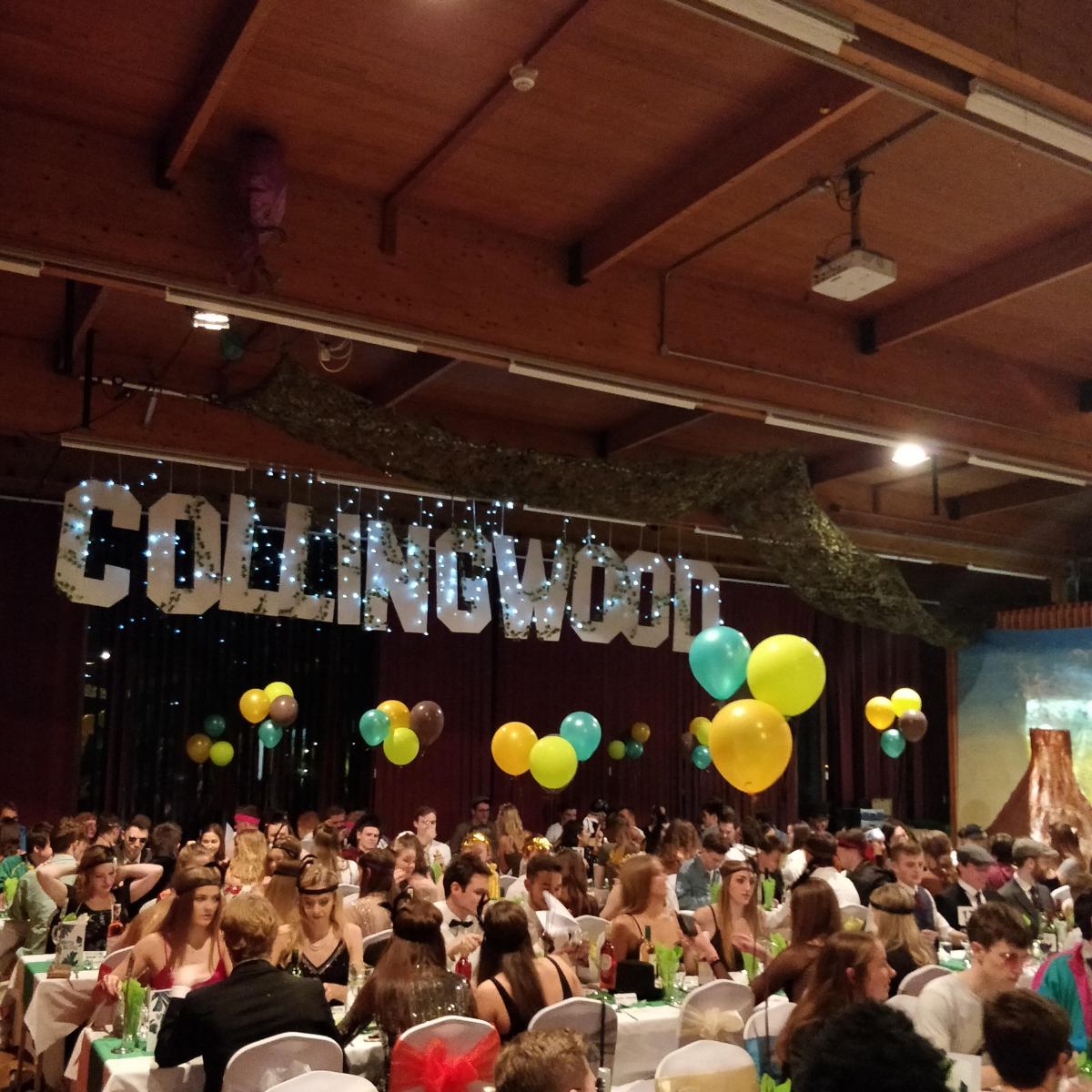
Collingwood College

Overview
| Year founded | 1972 |
| Motto | Aime le Meilleur (Love the Best) |
| Number of students living in the college | 555 of 1,790 total students |
| 1st year rooms |
522 |
| Catering options | Catered |
| Gowned formal dinners | No |
About us
Our long-standing excellence in sport is now matched in theatre, music, film and tech. We’re a fully catered college with standard and en-suite accommodation and outstanding facilities to help you pursue whatever is important and meaningful to you.
Find out more
Find out more
College Life
Our culture is informal and non-hierarchical. Collingwood is an energetic and modern College, that's not to say we don't have traditions, of course... you'll often see energetic renditions of "Country Roads" at the end of a formal dinner!
Facilities
Facilities that support your extra-curricular personal development, and provide an environment that encourages Collingwood students to get involved, be ambitious and try new things.
Get in touch
If you have any queries please contact us.
Collingwood College
South Road
Durham
DH1 3LT
Tel +44 (0) 191 334 5000




/prod01/prodbucket01/media/durham-university/colleges/collingwood-college-/COLLINGWOOD-DAY.jpg)
/prod01/prodbucket01/media/durham-university/colleges/collingwood-college-/JCR-Pool.jpg)
/prod01/prodbucket01/media/durham-university/colleges/collingwood-college-/IMG_1322-(1).JPG)
/prod01/prodbucket01/media/durham-university/colleges/collingwood-college-/Reconnect.jpg)
/prod01/prodbucket01/media/durham-university/colleges/collingwood-college-/6-formal.jpg)

